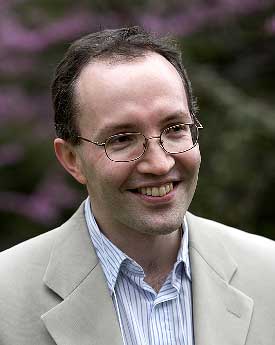| 2018年10月31日上午9:00 Jonathan Culpeper讲座信息 |
| 发布人:许雅缘 | 发布时间:2018-10-29 | 浏览次数: 1469 |
说明:因为讲座前有个客座教授敦聘仪式,烦请有来听讲座的老师于8:20到场。
讲座题目:Reciprocity and (Im)politeness: Some reflections
讲座时间:2018年10月31日上午9:00-10:30
讲座地点:外国语学院多功能厅
讲座人:Jonathan Culpeper(Lancaster University)
Jonathan Culpeper is Professor of English Language and Linguistics in the Department of Linguistics and English Language at Lancaster University, UK. His research spans pragmatics, stylistics and the history of English. Recent publications include: Pragmatics and the English Language (2014, Palgrave; co-authored with Michael Haugh), The Palgrave Handbook of (Im)politeness (2017, Palgrave; co-edited with Michael Haugh and Dániel Kádár), Second Language Pragmatics: From Theory to Research (2018, Routledge; co-authored with Alison Mackey and Naoko Taguchi), and English Language: Description, Variation and Context (second edn., 2018, Palgrave; lead editor). For five years was co-editor-in-chief of the Journal of Pragmatics (2009-14). He is currently leading the £1 million AHRC-funded Encyclopaedia of Shakespeare's Language project.

讲座摘要:
Over the last two years, I have been working with Dr. Vittorio Tantucci on the notion of reciprocity in the context of (im)politeness. This paper elaborates on our work.
A frequent dictum in many religions and legal frameworks, reciprocity has been discussed in social psychology and sociology in particular, the classic contribution being Gouldner (1960: 170). The background to our definition of reciprocity is Gouldner's suggestion that it is underpinned by “a generalized moral norm [...] which defines certain actions and obligations as repayments for benefits received” (1960: 170), and the idea of politeness as akin to a social payment (cf. Werkhofer [1992] 2005: 170-2, 182-7). Reciprocity, in our view, is simply about maintaining a balance of social payments. A polite request makes a social credit that can be balanced by polite compliance; an insult makes a social debit that can be balanced by a counter insult.
Of course, interlocutors do not always comply with reciprocity. For example, in accord with the 'surplus' approach (Kasper 1990; Watts [1992] 2005), one way of achieving politeness is to respond to a formulaic ('politic') utterance with a more creatively polite one. Such deviations from reciprocity are of particular interest because they trigger further inferencing and/or reflect social constraints. I will map out and illustrate a matrix of reciprocity options, plotted according to the interlocutors' (im)politeness thresholds and whether they match or not. Matches might involve, for example, the performance of 'politic' behaviour or banter. Mismatches might involve, for example, a strong upshift as a means of seizing the moral high ground, or a strong downshift as a means of rejecting something and/or somebody.
Finally, I focus on reciprocity in the context of requestive exchanges. We have developed a method for modelling pragmatic constraints. It involves coding requestive exchanges in corpus data, substantiating our coding with an informant study, and then statistically plotting our results drawing on conditional inference trees, random forests (e.g. Tagliamonte & Baayen 2012) and distinctive collexeme modeling (e.g. Gries & Stefanowitsch 2004). This method aims at measuring the degree of attraction between (im-polite) requests and subsequent (un-)reciprocal responses.